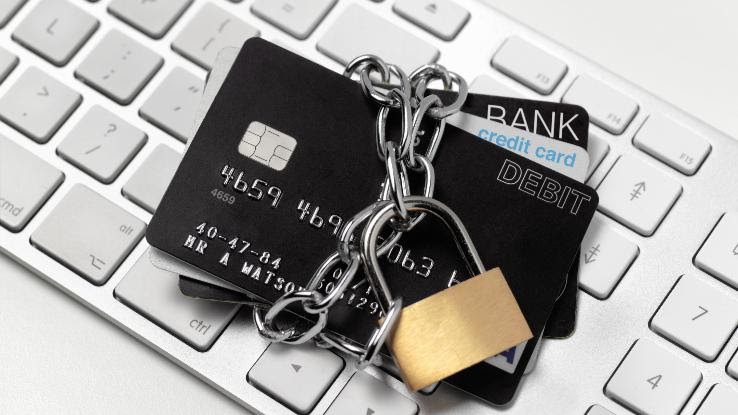
You’ve worked hard to build up a great credit rating over time. Now, your strong financial track record has allowed you to purchase a house or car, make large-scale home improvements, go back to school, or build your future. But many people don’t realize how quickly identify theft can make all of these possibilities simply disappear.
What Is Identity Theft?

Identity thieves use certain sets of information about you, known as Personally Identifiable Information (PII), to assume your identity for the purposes of using existing or opening new lines of credit. Once this credit is at their disposal, they make purchases in your name or walk away with large sums of money and no intention of repaying it. Their actions are connected with you and ultimately destroy your credit and reputation. The damage can be so bad that it takes years for victims to recover.
Types of Identity Theft

Identity theft is a blanket term for a range of scenarios in which an unauthorized person gains control of financial access and privileges that they didn’t earn. It can occur by someone assuming control of credit cards and lines of credit, impersonating a child, impersonating a deceased person, or creating an entirely new identity for a person who doesn’t exist.
5 Ways to Protect Your Identity Online

Identity theft is serious, and recovering from it is stressful and time-consuming. Here are five things you can do to prevent it from ever happening in the first place:
Use Strong Passwords and Change Them Frequently
Passwords are the gateway that keeps thieves out of a range of personal information they need if they want to use your identity. But not all passwords are created equally. These tips for creating strong passwords can help you build an effective one. In addition, change passwords periodically, and don’t use the same one for multiple access points. If all of this seems overwhelming, use a password keeper to help you keep track.
Lastly, remember that this advice is warranted for individuals of all ages and all walks of life — even children. If someone is old enough to access and use a device, they’re old enough to be vulnerable to identity theft.
Quickly Report Any Lost or Stolen Credit Cards or Personal Identification Cards
Don’t hesitate to notify your credit card company, bank, credit bureaus, or the authorities as soon as you notice that your credit cards, social security cards, passport, birth certificate, or wallet are missing. While these notifications can kick off the inconvenient process of updating your information with the card company and all of the places you’ve used your card online, everyone needs to know what’s happening so they can prevent unwarranted use of your account.
Enable Two-Factor Authentication
While two-factor authentication can sometimes slow down online transactions, it’s an added layer of security that ensures you–and only you–are connecting to an account, and experts advise that you use it as much as possible. It is particularly helpful when you’re working on sites with sensitive information such as bank account or credit account information
Don’t Open Any Emails or Click on Links That You Receive from Unfamiliar Senders
Show some healthy skepticism before clicking on links or opening emails that don’t seem right, and teach your children to do the same. That’s because connecting in with the wrong email or link can allow identity thieves access to your information, and some of them can use that to impersonate you.
For emails, consider who is sending it and whether this type of email is something they would typically be a part of. If you don’t absolutely know the sender, or if the email is out of character for them, think twice before opening it. When looking at web links, hover over the link and look at the small address window that pops up in your browser bar. If that address doesn’t seem right, refrain from clicking on the link.
Refrain from Answering Online Quizzes
Sure, we all know that online quizzes can be fun. But they’re also a great way for thieves to gain personal information from you or your loved ones. When you’re filling out a quiz, you might be providing information about your birthday and birth year, pets you’ve had in the past, your family members, friends, favorite colors, and more. In the wrong hands, all of this becomes knowledge that can be used to take over your identity.
How Can You Tell If You’ve Been the Victim of Identity Theft?

If you’ve been a victim of identity theft, the problem might not be obvious–at first. Luckily, there are things you can be alerted for to spot trouble early and minimize damage. One common clue is that a credit card company might notify you about a purchase that’s inconsistent with your history. Alternately, you might have more trouble than you’d expect when you go to open a line of credit for yourself or for someone else, like a dependent child. Other victims might receive notice from the IRS about activity they weren’t aware of, or fees they were not expecting. Any of these are signs that you might have been a victim.
What to Do If Your Identity Gets Stolen

If identity theft happens to you, the best thing to do is address it quickly. Immediately notify all of your credit card companies and anyone you are in debt to, such as your mortgage lender, your car loan holder, or your student loan provider. They should close out all of your accounts and reissue them with new numbers and passwords. You’ll also want to notify the credit reporting bureaus and the authorities.
As part of this notification process, you may be asked to take action to change passwords or reconfirm new accounts. Do this as quickly as possible. You can also report your identity theft and begin a recovery plan by going to identitytheft.gov.
Also, if you’ve been the victim of identity theft, take heart. It is possible to recover. Work with your creditors and any other financial advisor to develop and stick to a recovery plan. Doing so will help minimize the damage and restore your financial reputation.





